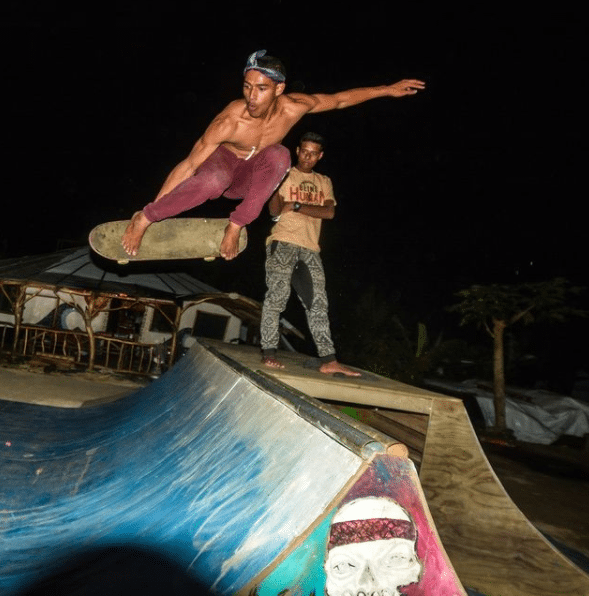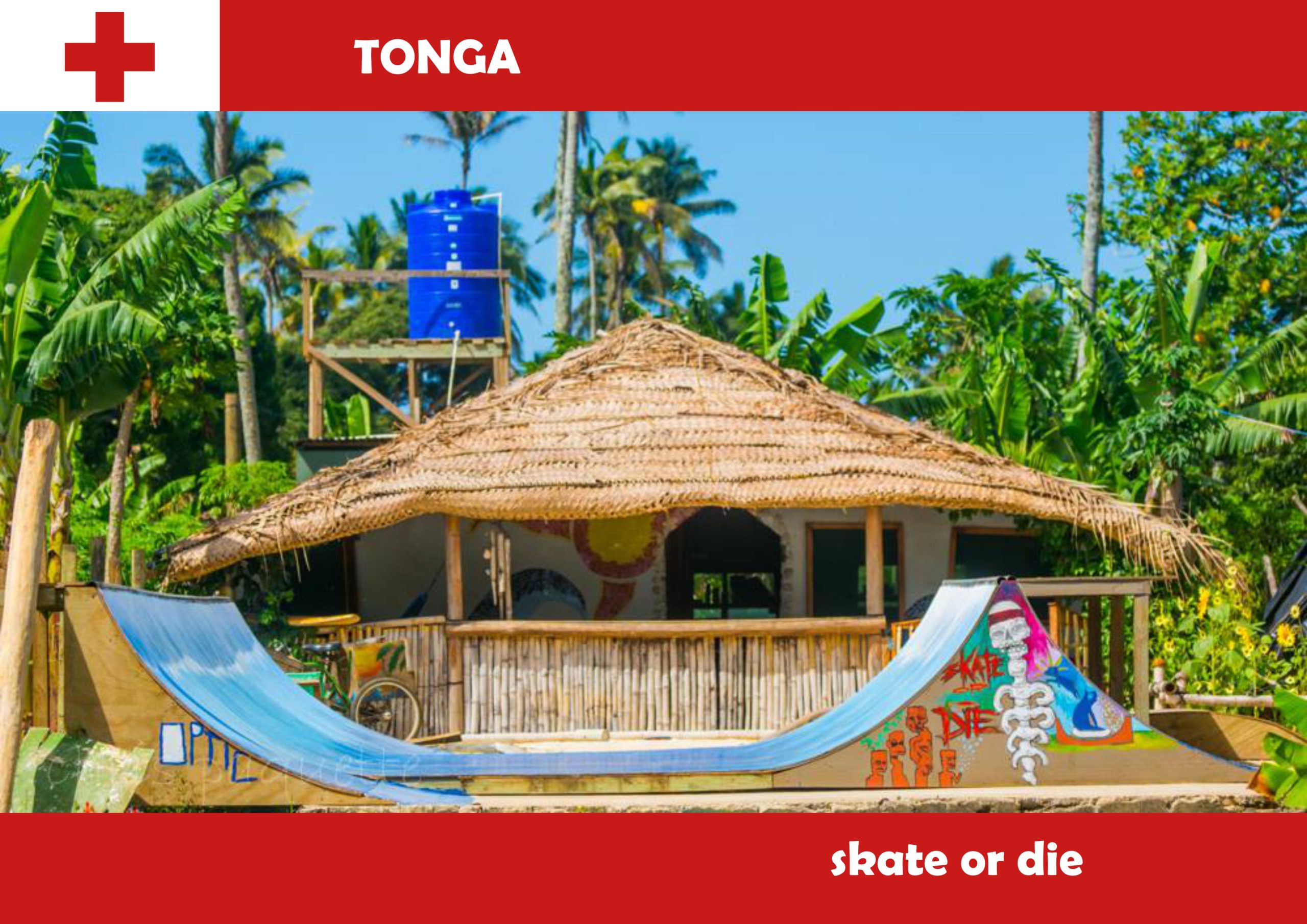
Tonga
Interview with Chris Paquette
Photos by Chris Paquette
February 2022
‘At first it seems fun, like you’re camping, but when combined with very little food, no privacy, bugs, lack of sanitation, and cyclone season it gets stressful.’
What is life like on an exotic island in the middle of the South Pacific? Is it as romantic as it sounds?
Life is definitely alot simpler, but not necessarily easier. You learn to go without a lot of things and can’t always get what you want when you want. The beaches are beautiful for sure, but I think most people imagine a five star resort but step outside the resort and it’s rougher, dirtier, you need to be able to think creatively, adapt, and be flexible. It’s challenging mentally and physically.
After watching ‘Called For Tonga’ you really hit rock bottom when you first moved out there without a home, without money, without food. At what point did you feel you truly arrived?
Probably within the first 3 months after the honeymoon phase wore off. We didn’t have a financial cushion so we very quickly had to acclimate to real “island life”. It was like sink or swim.
What was the biggest challenge that time?
It was hard for Ash (wife) and the kids and that’s what was hard for me (Chris). We all were adjusting to an inconvenient lifestyle. Normal, simple chores like washing clothes would take all day because we didn’t have a washing machine. For several months we didn’t have running water, so we had to pull water from a well over 200 meters away. Our roof was a tarpaulin, so we often had leaks and would have to strap it down with whatever we could find during storms. We were fixing our roof with bike tire patches! At first it seems fun, like you’re camping, but when combined with very little food, no privacy, bugs, lack of sanitation, and cyclone season it gets stressful. We also had 3 wheeler bicycles for getting around on. It was great exercise, but with growing kids and supplies loaded on the back it got harder and harder and the kids’ safety concerned us. One time, the axle broke when we were going around a circle in traffic. Me and two kids went flying into the road and Ash ran over my legs. Thankfully there were no serious injuries besides cuts and bruises. We prayed for a car and the next day someone from home offered to buy us a car! We still have that car today and don’t take it for granted.
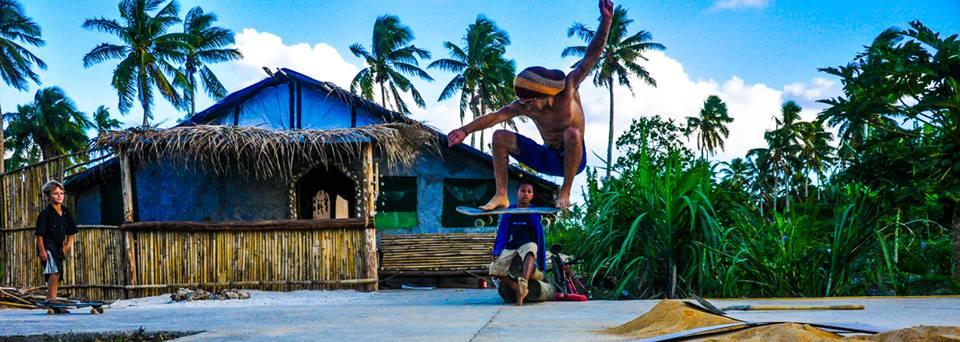
How long did it take you where you felt at home? Where you felt there was no longer a choice between sinking or swimming anymore?
When the skatepark was built in 2016. If we were sinking, the skatepark was a flotation device. Before we were existing, surviving, completely drained. With the skatepark, it brought me so much joy watching the kids skate. It was exhausting because it was right outside my front door, but it was so fun to jump in and join a skate session, everyone challenging each other to push harder and land the next trick.
You kicked off the project by having your own skatepark around 6 years ago. What has changed since then? Has it met your expectations yet?
Oh man, so much has changed. We had to take down the skatepark when we moved from the land it was built on. When it was in operation, it was awesome! It was directly in front of our house, so it was loud all the time, but the kids really enjoyed it. We are in the process of looking for ways to fund the building of a new permanent park.
What is your relationship with skateboarding?
Skateboarding saved my life! I was 9 when my Dad died and skateboarding became an outlet for all my emotions. Skateboarding kept me alive. Skateboarding teaches you to push yourself through failures and hard things. You fall down and sometimes break bones but you get up and try the trick again until you land it. It’s a mindset that carries you through life. It’s helped me be a better husband and father.
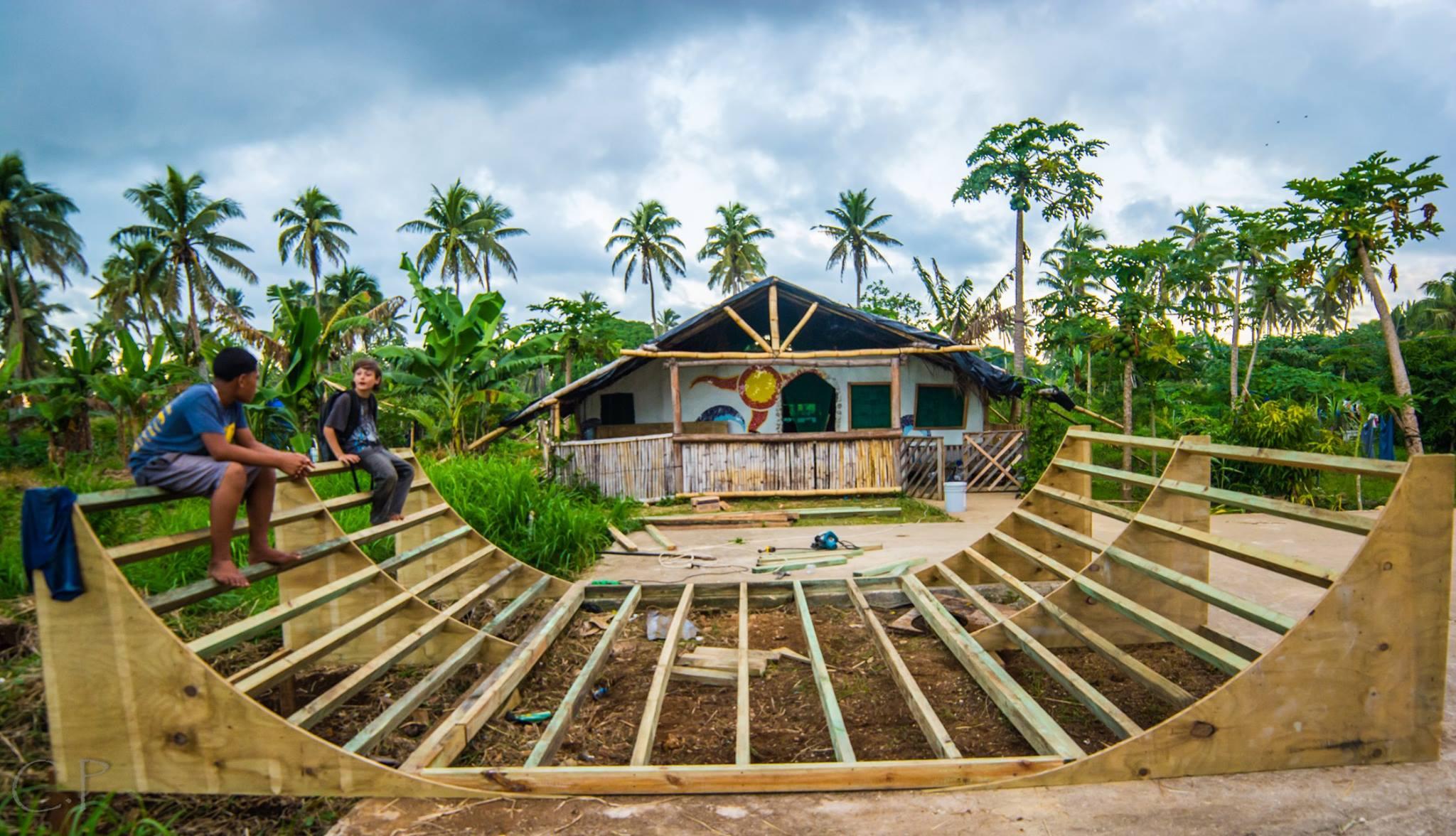
‘If we were sinking, the skatepark was a flotation device.’
Is there much concrete ground in Tonga at all (e.g. car parks, schools)? Where do kids skate outside your skatepark?
Mostly kids skate on skateparks and some parking lots. But it’s hard to find a place that the police won’t kick you out of and the road are rough.
How big is the skate community in Tonga at the moment?
The Skate scene really exploded when the Skatepark was in operation. Right now its cooled down but you still see kids messing around on the sidewalks.
How do the kids get their hands on skateboards at all? Donations?
We got several donations at the time. Word had gotten out so people visiting would stop by and drop off a few. We had some big shipments from overseas supporters donating boards, trucks, helmets, etc. Some kids had a board sitting around and when they found out about the skatepark, they were excited to try it out.
‘There is not much for kids to do here in Tonga so it was shocking for people to find something unique and free for kids. Kids always come up to me and ask about the skatepark.’
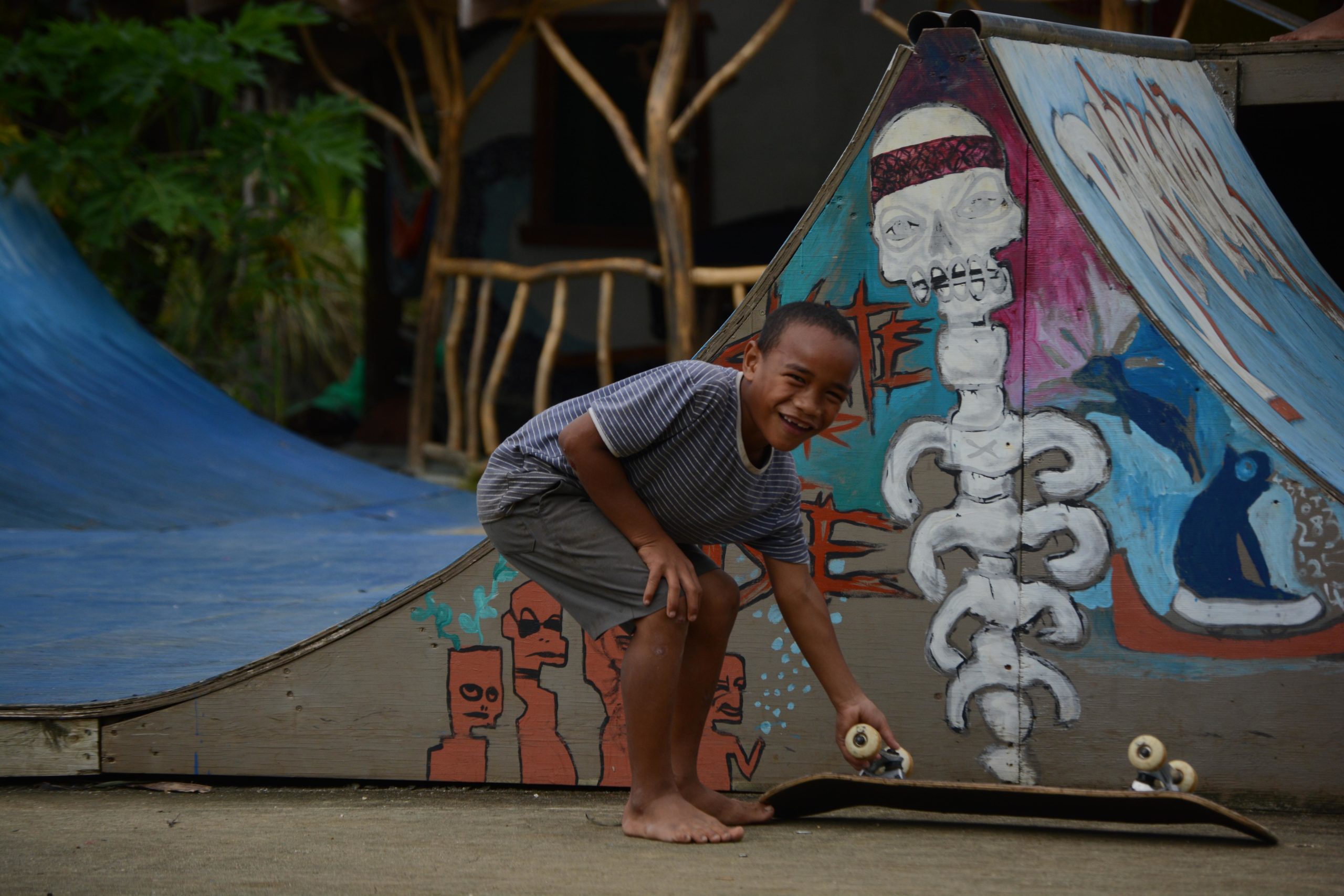
I have seen some of your posts on IG where you press your own skateboards in the middle of the jungle. It looks awesome. How did you do it?
We made a mould out of cement from another skateboard. On each of the 4 corners a 2 inch hollowed out pipe was set in the mould. Once it dried, a threaded bolt was put through the hollowed out pipes with a washer and nut on either end so it could be tightened to make a press. We laid the mould with strips of cedar. It was all we had at the time and wood glue. We pressed it for 2 days and then removed the board and sanded it down.
Are you still pressing your own boards?
Unfortunately, no. Although we made a board with local materials, it wasn’t strong enough. It got a few rides and then broke. Cedar is too soft a wood and the wood glue here is too watery. We may revisit the project again when we can use the good materials and get it right.
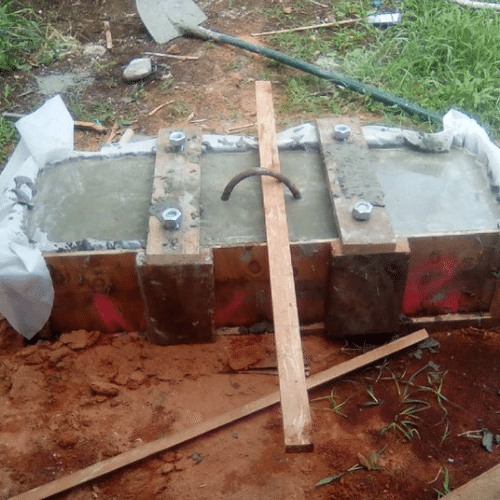
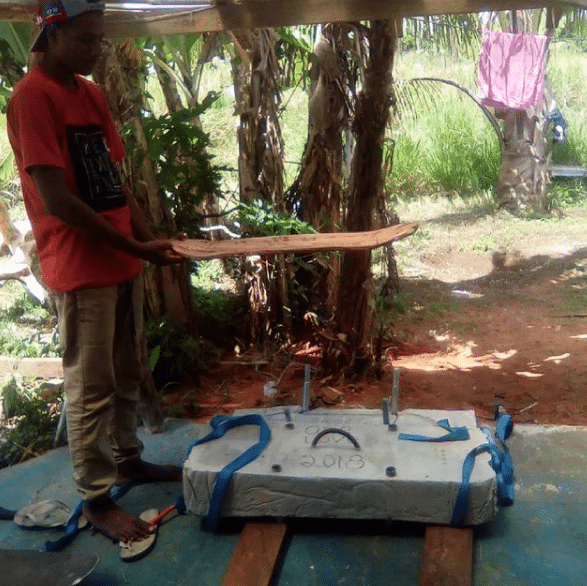
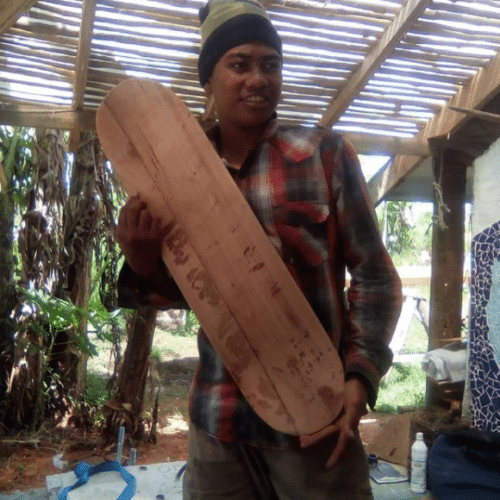
Do you get any support from the government from what you do?
No, but we will be putting together a proposal asking for land to build a new skatepark.
Do they value what you are doing?
We had so many parents tell us how much they appreciated a free place for their kids to skate. There is not much for kids to do here in Tonga, so it was shocking for people to find something unique and free for kids. Kids always come up to me and ask about the skatepark.
What are some of the challenges people face every day in Tonga?
Addictions to drugs and alcohol.
What do you want to do next?
Get the funding and land to build a new concrete Skatepark free for the public. We have a blueprint being made at the moment. We are working with another non profit (I am a member) called Dare 2 Dream whose core members are returnees. We are kickstarting a project with them to build a base for new returnees to have a safe place to learn from other returnees and adjust to Tongan life. I will be training the returnees here how to build, so they can train others and also spiritually come alongside them. Returnees struggle with adapting to the Tongan lifestyle and find it easier to revert back to what they are familiar with: crime. They influence the youth here as well, which is why we found skateboarding a great alternative and diversion from negative influences. Our goal is to alleviate the recent influx of drugs and crime in Tonga by coming alongside these returnees with real life help and hopefully change the stigma attached to the returnees by redirecting them positively in their communities.
Last question: If you could interview a person, who would it be and why? What would you ask?
Christian Hosoi. I love the way he skates, my brother and I had a similar style. Was it worth it to miss the competition between him and Tony Hawk?
